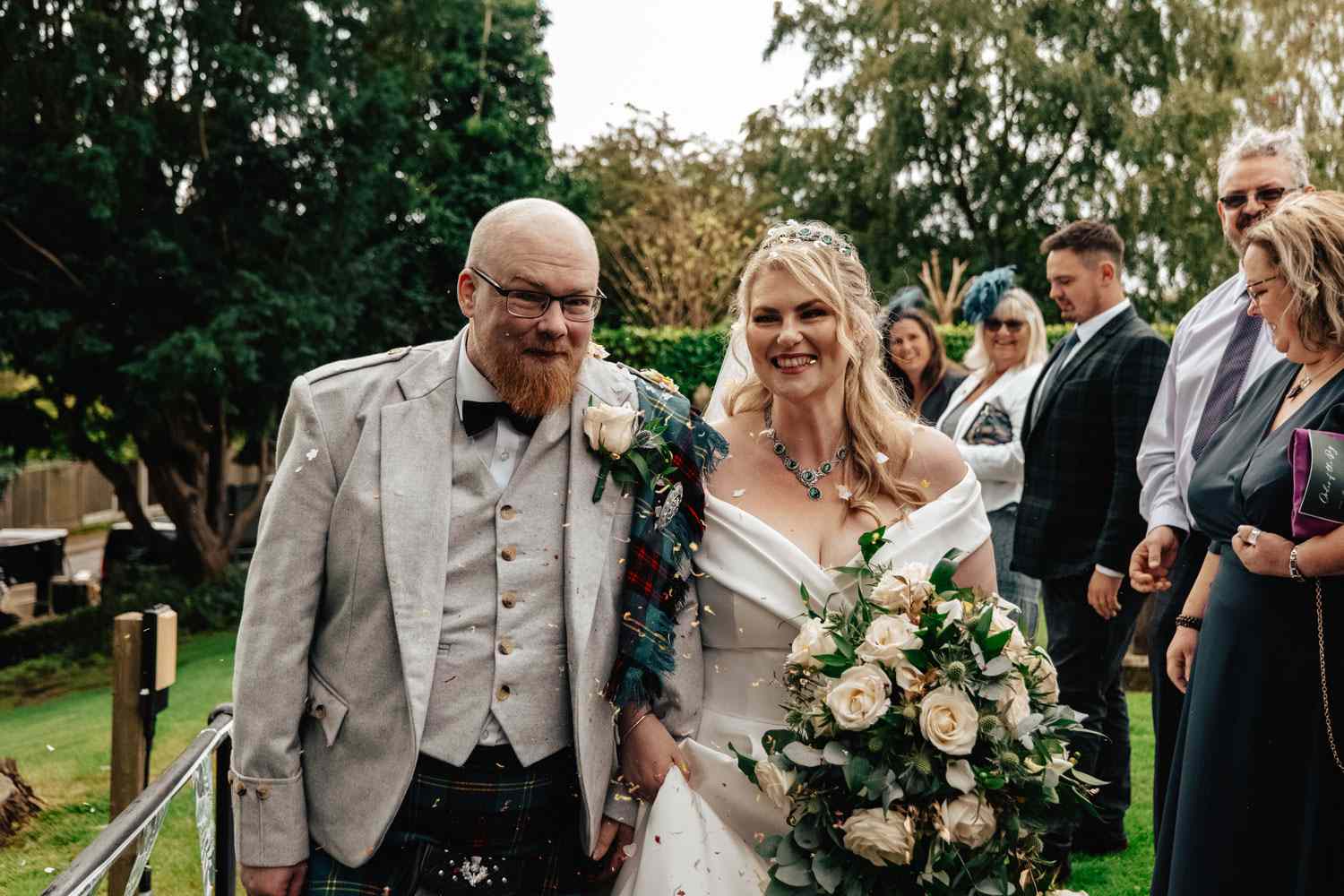A British woman has revealed how the immense stress of organizing her extravagant wedding left her feeling “shattered” and “exhausted” for an extended period.
Lucinda Rose, a child psychologist hailing from Cheshire, England, shared with SWNS that while she was initially enthusiastic about coordinating every aspect of her special day with her now-spouse Ian Brown, the wedding preparations soon became all-consuming. Rose expressed, “The wedding took control of my life right from the moment we confirmed the venue.”
The proposal from Brown, 43, came in January 2023 following 16 months of courtship, leading the couple to set a date for their nuptials in September and secure the wedding location. The weight of a substantial deposit added pressure on them to ensure everything was perfect. Rose, aged 39, recollected, “It became an overwhelming mental and financial burden that just kept escalating.”
Originally intending to invite 50 guests and stick to a budget of £15,000 (approximately \(19,000), the couple’s guest list expanded to 120 individuals, and their expenses surged to £40,000 (around \)50,000). Succumbing to the excitement of the moment, Rose decided to indulge in additional luxuries such as a fireworks display, a string quartet, a horse-drawn carriage, and an ice cream van.
As the costs mounted, Rose undertook numerous time-intensive do-it-yourself projects to economize, including preparing confetti bags and transferring shots of limoncello into miniature bottles for their guests.
The bride-to-be soon found herself overwhelmed by the wedding planning process. She admitted, “In the month leading up to the wedding, I was so engrossed in various wedding tasks that I barely slept and had minimal time with Ian.”
The stress not only hindered her ability to savor her wedding day but also lingered for months thereafter. Reflecting on the experience, Rose shared, “I began to dread the event, and on the actual day, I struggled to focus. Even months later, my recollection of the day was hazy… I was embarrassed by my emotional state.”
Despite the wedding proceeding flawlessly, Rose disclosed that she was unable to discuss what should have been a joyous occasion for an extended period. She expressed, “The wedding had a detrimental impact on my life for three months. It’s a societal expectation. Women are conditioned to desire a flawless day, but reality isn’t a fairy tale.”
She clarified that her emotions went beyond mere “wedding blues” and amounted to a state of burnout. Anticipating a sense of relief post-wedding, Rose found herself grappling with persistent exhaustion and guilt.
“I often wished for the wedding preparations to conclude, but upon reaching that point, I was too drained to engage in anything else. The emotional aspect compounded my feelings, questioning why my sentiments differed from others and experiencing remorse over the expenditure,” Rose elaborated.
Struggling to articulate her distress to Brown, she felt burdened by guilt and shame. However, upon sharing her sentiments online, she discovered a community of individuals who had encountered similar post-wedding burnout.
Rose aspires that her narrative will aid future brides and grooms in evading the pressures associated with striving for a “flawless” wedding day. She emphasized, “Especially as women, we are conditioned to believe our wedding will be the pinnacle of our lives. Hence, it’s isolating and disheartening when expectations are unmet.”
Expressing relief in finding solidarity with others who shared similar experiences, Rose advocated for greater openness surrounding this topic. She concluded, “It was immensely comforting to realize that others had undergone comparable struggles—more individuals should be candid about it.”
